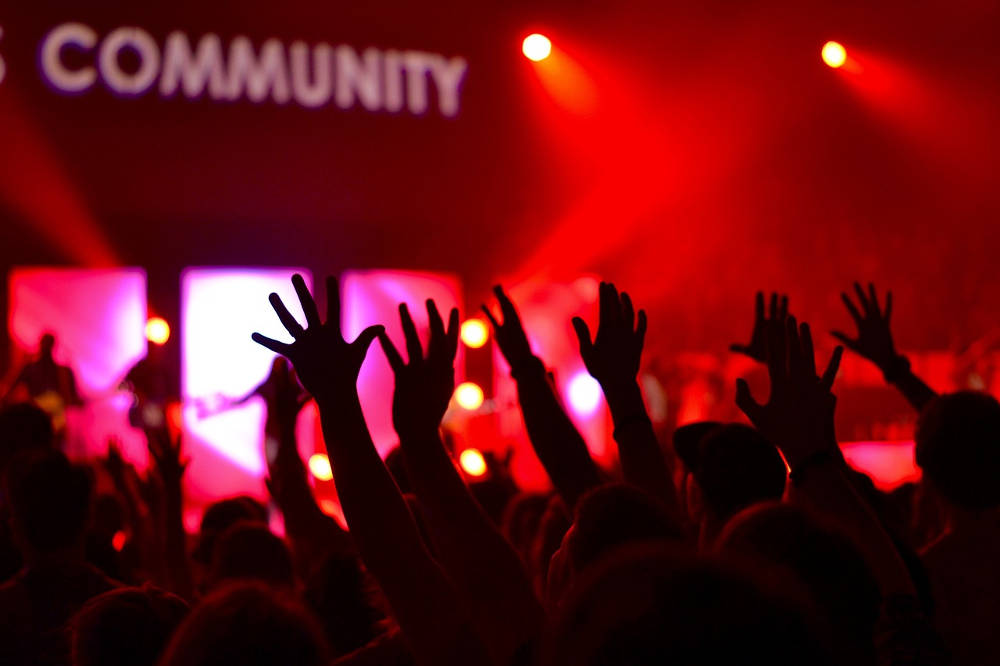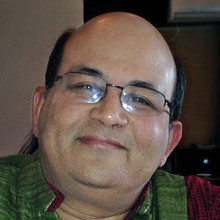[Photograph by Unsplash under Creative Commons]
Every year when we celebrate the anniversary of our Independence, it’s natural to think of the sacrifices and contributions of those who got us freedom. But, we are not truly free as long as millions of people don’t have enough to eat or a roof over their heads. As BR Ambedkar pointed out even before our Constitution was adopted, political equality in terms of the right to vote doesn’t ensure economic and social freedom.
Achieving such economic and social freedom for all can’t be done by the government alone. All of us, more so those who are well educated and have benefited from the precious resources of India, have a role to play.
And, having the right role models is critical to nudging us in the right direction.
A country is defined by those who it celebrates. Heroes and role models play an important role in motivating and inspiring the right kinds of behaviour. I often hear a lament that we don't have enough contemporary heroes and role models. But what if we have them, but fail to recognise or celebrate them?
I often start talks which I give to student groups with a short quiz focused on people related to the theme of my talk. For example, when I addressed students of my alma mater DAV in Chennai some months ago, I showed them pictures of chief economic adviser Arvind Subramanian (a fellow DAV alum) and cinematographer and director Rajiv Menon (a contemporary of mine who went down a “different” path). At another talk on personal branding to executives and entrepreneurs in Indore, people featured in the quiz ranged from historian Ramachandra Guha (who followed his passion in modern Indian history) to PepsiCo India CEO D Shivakumar (ace marketer and CEO).
My common experience across these quizzes has been disappointing to say the least—even well-educated Indians are not able to recognise outstanding Indian achievers. I haven’t checked, but I am sure these same audiences will have little trouble in recognising the usual suspects—film stars, cricketers and politicians (fcp) in no particular order!
Is this ignorance of real achievers because of the media? While fcp undoubtedly get a lot of visibility in the media, the people I include in my quizzes are no shrinking violets. They are public figures who feature in events of all types including talk shows and interviews on television, and their pictures often appear in the print media.
It could be a cultural thing. I often read the obituaries in The New York Times. They devote generous space to ordinary people who have done good work. What’s more important is the way the obituaries are written, with a generous twist to each person’s achievements and some insights into her as a human being, and as a daughter, sister or mother. A good example would be the obituary to Anita Datar, an aid worker who was killed in an attack in Mali in November 2015 soon after the Paris shootings. Hillary Clinton described Datar as representing “the best of America’s Generous Spirit”. By and large, our media would devote the kind of space devoted to Anita’s death only to an fcp or a prominent businessman.
I would place some of the blame on our political processes though. Parties and regions across the board have been miserly in bestowing public recognition to “ordinary heroes” resulting in widespread visibility of a few to the exclusion of others.
I am particularly concerned when we can’t recognise achievers we should relate to. Mathematics, science and engineering are at the heart of the Indian middle class dream. So, here is a quiz question. Can you name the Indian computer scientist who has won the Clay Research Award, the Gödel Prize, the Fulkerson Prize and many other awards for solving a Math problem that had remained intractable for years?
If you were able to answer this question, you are one of the few Indians to recognise Manindra Agrawal, a professor at IIT Kanpur who along with Neeraj Kayal and Nitin Saxena was the first to develop a deterministic algorithm to test an n digit number for primality in polynomial time. Given the constant criticism of the Indian education system in the media and among the middle class, Agrawal deserves even more credit as he did his whole education right up to his PhD in India.
Women role models are even more difficult to find. Surfing the net, I found a feature by India Today on most influential women. Some were inheritors of family fortunes and I can’t see them as being a particular source of motivation or inspiration to anyone—questions would always remain as to how much of their success is due to the families they were born into. The others fell largely into two groups—Indian women heading multinational companies’ subsidiaries in India (all of whom got their present position after prolonged stints as non-resident Indians) and the women catapulted into top management positions by the magic of ICICI under N Vaghul and KV Kamath.
What makes matters worse is that several fcp are far from ideal role models. In a recent article, Aakar Patel brings to our attention an unfortunate characteristic of many of them—a strong self-centeredness. Patel gives the example of Sachin Tendulkar having time to meet the defence minister to argue for a friend’s business interests, but not having the time to attend parliament.
An interesting phenomenon is how foreigners are able to identify and recognise our talented people much better than we are ourselves. This goes back to the time of mathematician GH Hardy “discovering” S Ramanujan but continues to this day—the jury of the Magsaysay award is able to recognise real heroes like Anshu Gupta of Goonj and Bezwada Wilson of the Safai Karamchari Andolan much before we as a nation give them the credit they deserve!
In fact, here it’s often the reverse—we pay too much attention to foreign heroes. I was particularly intrigued to hear that a story on Maria Sharapova is to be dropped from school textbooks in Goa following her two-year ban for doping. What was she doing in Goan textbooks anyway when we have a Sania Mirza or Saina Nehwal to feature?
The key is to have role models people can relate to. And role models who convey the right values. Of hard work, perseverance, honesty and integrity. Of generosity of spirit and sensitivity to society. Can we resolve on this the 69th anniversary of our independence to identify and celebrate the right contemporary role models?
(The views expressed here are personal.)


Flipkart Account on Aug 26, 2016 3:48 p.m. said
"...example of Sachin Tendulkar having time to meet the defence minister to argue for a friend’s business interests, but not having the time to attend parliament.."
Krishnan has brilliantly brought this example which should be known to 'common man' more readily. Men of this nation really are incompetent in lauding the real stars. They are in other words, media-talkers.
Vikas Sharma on Aug 10, 2016 3:04 p.m. said
Absolutely! Having right ideals and heroes are important, after all its heroes that lead and show the righteous path. This becomes even bigger question for our huge nation where numbers on pitch or box office cuts the deal!!
So the very definition of hero in India is in question! Should the hero be nationalist, pro country but then will he be secular? can both co-exists? the one who owns trillions of rupees and not paying taxes!! Or as you say, a mathematician; solving a great puzzle!
I believe, we should look beyond achievers of a certain field and avoid calling them hero and giving them larger than life figure, be it from industry, film, academia or sports. The real hero should be the one being sensitive towards humanity, kind, benevolent but firm, assertive and confident. He should know is fundamental right and should fight for others for it. He should keep others over self. If such thought is rightly published, it would be a large 'Swacha your mashtiska' campaign and trust me, will be better placed than swacha india.